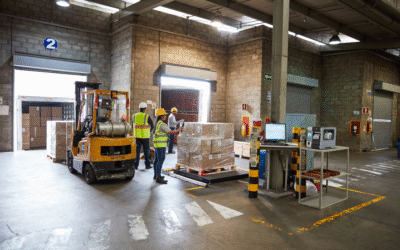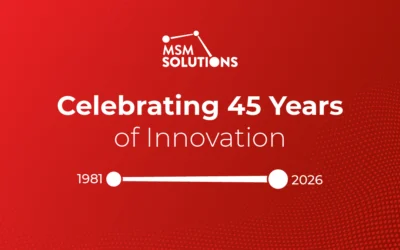In an age where consumer safety and regulatory compliance are paramount, the pharmaceutical industry faces increasing pressure to ensure the integrity of its supply chain. The Drug Supply Chain Security Act (DSCSA) mandates stringent measures to protect consumers from counterfeit, adulterated, or otherwise compromised drugs. The adoption of automatic identification and data capture (AIDC) technology, including barcoding and RFID, has emerged as a critical enabler in achieving compliance and safeguarding public health.
Barcoding: Foundation of Electronic Tracing
Barcodes have been a cornerstone of product identification and traceability for decades. Their simplicity and effectiveness in encoding vital information make them an ideal solution for the pharmaceutical industry. Each barcode represents a unique identifier that can be associated with critical information like batch number, expiration date, and serial number. This ensures that every step of the supply chain, from manufacturing to dispensing, can be monitored and tracked.
Through the integration of barcoding technology, industries like pharmaceutical can establish a digital trail that provides real-time visibility into the movement of products. Use of a handheld barcode scanner or mobile computer with a built-in scan engine makes it easy to track and record data. Barcoding also minimizes the risk of manual errors in data entry since all the information is captured electronically, enhancing overall efficiency, and reducing operational costs. This level of transparency not only helps to ensure regulatory compliance, but also enables companies to respond quickly and accurately to recalls when needed.
RFID: Revolutionizing Supply Chain Monitoring
While barcoding is a powerful tool, it does have limitations, particularly in terms of line-of-sight scanning and the manual nature of data capture. This is where RFID technology comes into play, offering a game-changing solution for supply chain management.
RFID tags contain microchips and antennas that can transmit information wirelessly, allowing for seamless, non-contact data capture. This technology enables the tracking of products in real-time, even in bulk or when stored within containers. With RFID, a single scan can capture information from multiple items simultaneously, drastically reducing the time and effort required for inventory management. This is particularly helpful in situations requiring immediate attention.
Beyond Pharmaceuticals: AIDC in Various Industries
The impact of AIDC technology extends far beyond pharmaceuticals. Industries such as electronics, consumer goods, and cold chain logistics have embraced these solutions to enhance their own supply chain security. In electronics manufacturing, barcoding and RFID ensure accurate tracking of components and finished products, aiding in quality control and counterfeit prevention. In the consumer goods sector, automated track and trace allows for seamless inventory management, reducing out-of-stock incidents and improving customer satisfaction.
Cold chain monitoring, crucial for industries like healthcare and food, relies heavily on mobile technology. With cloud-enabled temperature sensors, companies can monitor the condition of sensitive products in transit, ensuring they remain within specified temperature ranges. This not only guarantees product quality and safety but also complies with regulatory requirements.
Zebra Technologies: Pioneering RFID Solutions
Among the leading innovators in AIDC technology is Zebra Technologies, a company at the forefront of RFID solutions. Zebra’s RFID technology has evolved to meet the dynamic demands of today’s supply chain landscape. Their comprehensive suite of products and software solutions empowers businesses to achieve seamless integration of RFID into their operations.
Zebra’s RFID solutions are designed to enhance visibility, accuracy, and efficiency throughout the supply chain. Whether it’s asset tracking, inventory management, or compliance with industry regulations, Zebra’s RFID technology offers robust capabilities that drive success.
With respect to DSCSA, Zebra conducted proof of concept testing with a major pharmaceutical company in 2021; their testing showed RFID is indeed a viable option to address items and materials such as pre-filled vials and syringes, blister packs, tablets, and heavy liquids. RFID technology has greatly improved in the last 2-3 years, and RFID tag pricing has come down to a more reasonable level.
In an era of heightened scrutiny on product safety and compliance, the adoption of AIDC technology is not only a strategic choice but a necessity. Barcoding and RFID solutions play a pivotal role in achieving Drug Supply Chain Security Act (DSCSA) compliance, offering a robust framework for electronic tracing. From pharmaceuticals and consumer goods to electronics and cold chain monitoring, AIDC technology has become the backbone of modern supply chains.



